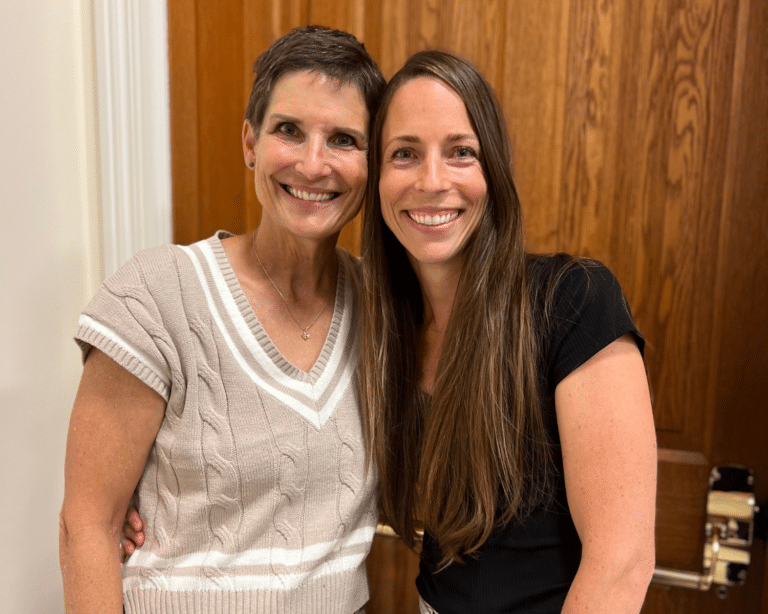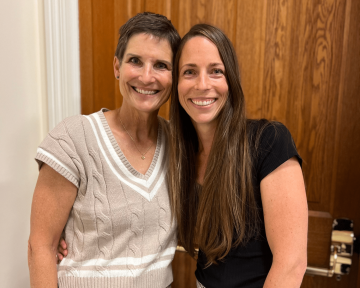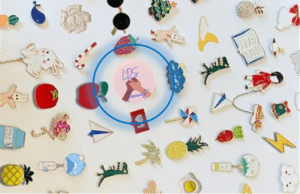In an interview with Utah State Representative Marsha Judkins, Judkins reveals why she became a legislator, what she’s learned, and how identifying as a feminist has affected her experience in politics.
1. Why did you run for a seat in the Utah State Legislature?
I’ve always been interested in policy and politics but I don’t think I ever thought I would run for anything. However, I decided to run for the School Board (in Provo) for a variety of reasons, and while I was on the Board, I realized how much of what we were required to do was dictated by the Legislature and, from my experience, it was not a very sympathetic Legislature to education.
It seemed like education’s voice was mostly condescended to or not believed or not listened to at all so I thought, well, I would like to be in the Legislature and try and change that narrative, try and change that relationship between government and education to be more positive.
Also, to be honest, I didn’t feel listened to by my own Legislators. I didn’t feel like my area in West Provo was listened to or represented. So that’s why.
2. What have you learned from your six years as a State Legislator?
Wow. I have always believed that the best decisions are made by bringing together a variety of stakeholders and listening to those with different points of view and different experiences, and being in the legislature has reinforced this belief. I have learned that listening is so important. I feel like I can talk about almost any subject, not super in-depth, but I have tried to learn enough so that I can vote on legislation, have a conversation, or ask good questions about most topics. I’m certainly not an expert in everything, but I feel like I’ve become (somewhat) of an expert in some things.
I have also learned that just because you disagree with someone doesn’t mean you can’t like them. When I was elected, I went to the Capitol thinking I wasn’t going to like some legislators because I was so disgruntled with how things were being handled. I saw things in the newspaper about laws that were being passed, and I didn’t think I could possibly like people who would make these decisions. I assumed that I would feel as negative towards these people as I felt towards the things they did and said. But I realized that there are really good things about everybody. I was surprised by how much I liked just about everybody.
I always knew I liked people . . . but I didn’t think I would like these people necessarily, and I just did.
I learned that I love being in a position to make a difference.
3. Do you identify as a feminist? Why or why not?
I do. I do identify as a feminist. I agree with Melinda Gates’ definition: “Being a feminist means believing that every woman should be able to use her voice and pursue her potential, and that women and men should all work together to take down the barriers and end the biases that still hold women back.”
Women should be in places where decisions are made. Women have been left out of too many equations for too long. Sometimes I say I’m a radical feminist because I want the people around me to think about it and maybe feel uncomfortable. I want them to wonder: Why is this Republican woman saying she’s a feminist? Why is this Republican woman who was a stay-at-home mom who raised seven kids in a patriarchal, high-demand church saying she’s a feminist? Feminism can be seen as a dirty word, and I’m like, no! I want you to think about it. I want you to see that I’m a really kind, intelligent, critical thinking, accomplished person and I’m a feminist.
4. Why aren’t you running for a seat in the legislature again?
I work really, really hard at what I do, and then I see something else that looks really hard and important and good and I want to try that. So I’m running for Mayor next year. There are things I can do on a local community level that I can’t do in the Legislature. And I think that’s really important.
I have to also say that running a campaign is really hard and really awful in a lot of ways. And I know I have to campaign to run for Mayor, but I couldn’t see myself campaigning again for this position that has run its course for me.
And being a legislator demands a lot of time and energy with very little compensation. That sounds greedy, but I gave so much of myself to this thing and it was really great and important and good but with such little pay, it’s unsustainable for me. To be compensated for one’s work is important.
5. If you could pass any bill in Utah, what would it be?
I had twelve bills that didn’t get passed last session and some of them were really important to me so it’s difficult to narrow it down to one thing. Sheesh. How can I put it all into one bill? Hm. This isn’t really a bill, because I got the bill passed, it just didn’t get much funding, but I want to see a lot more funding dedicated to helping people with serious mental illness, including life-long wrap-around services. That would be really important.
It’s all funding, actually. I would like to see more funding go to victims of domestic violence, I would like to see more funding go to the five thousand families on our waiting list for disability services for their kids, and I would like to see more funding for addiction recovery services and rehabilitation for those in jail. There are hardly any services in jail at all. So it’s often a revolving door and people end up back in jail over and over. So, my dream would be to take care of people–those dealing with serious mental illness, disabilities, intergenerational poverty, homelessness, addictions, foster care, etc.–in a way that has long term results instead of just throwing money at people short term and thinking that is fiscally responsible.
6. What are you most proud of during your six years as a legislator?
I am proud of the relationships that I’ve made. I’m proud of some of the funding that I’ve gotten for some groups and programs like increasing DCF caseworkers’ salaries and services for those with serious mental illness. I’m proud that I was able to shine a light on some of the places that needed a light – like special education and the disabilities waiting list– that are easy to ignore. Most of my legislation was people-centered and for people who really didn’t have a voice. I’m proud that the groups and organizations that work with those people trusted me, they knew that I was a sympathetic place that they could go to because I would listen. I’m proud of that.
7. What are some of the barriers and limitations of government that you’ve seen as a representative for your district?
One of the biggest barriers, honestly, that limits the good that could happen is apathy. All activism starts with the citizens. Even if someone is elected that wasn’t your first choice, if everybody in the community is reaching out to that person and saying, hey, this is important to us, that would open their Representative’s eyes to what is going on in the community.
For example, I send a weekly email to six thousand of my constituents, and about 20% get opened, which is great. That’s a lot of people. But that is certainly not my whole district of about 40,000 people. That means that I’m reaching about 1% of my constituents and I work really hard to reach them but there’s not a great way for Legislators to connect with their constituents. I don’t think that people realize that they can reach out to us. I don’t think that people understand the power of a democracy – a government built by the people for the people.
That is what I would like to change: people feel like they don’t have a voice so then they don’t raise their voice. But if enough people decide to be loud, everything would be different.
8. Exponent II focuses on the intersection of Mormonism and feminism. How do you relate to this?
The intersection between Mormonism and feminism is just an intersection with a lot of car crashes. So, there’s not a lot of people getting through that intersection. Maybe it’s more like a roundabout with no exits.
9. What would you like to tell the Exponent II community?
Thinking about women and voting and how many women hold office, I often hear that we shouldn’t vote for women just because they’re women, but I think that to make things equal, sometimes we should. It is important for all of us, men and women, boys and girls, to see women in positions of leadership. However, I have to admit there are some women I would never vote for. 🙂
Think of who you would like to run for office or to represent you in government, try to think of a woman, or even yourself, and then be part of the change you want to see.
Representative Marsha Judkins serves in the Utah State Legislature.






8 Responses
Loved this interview! I would love to get involved in supporting the mayoral race!
But also, mic drop: “The intersection between Mormonism and feminism is just an intersection with a lot of car crashes. So, there’s not a lot of people getting through that intersection. Maybe it’s more like a roundabout with no exits.” I’m going to be thinking about this for a long time.
Thank you, Katie! I keep thinking about that quote about an intersection with a lot of car crashes, too. The imagery is harrowing. At an intersection with a lot of crashes, the state realizes that the road design, signage, or speed (or all three!) needs changing. . . Car crashes are red flags for needed traffic changes. . .
This was a great and inspiring interview. Thanks for putting this together. You asked great questions and she shared a lot of wisdom I appreciate. I have a lot of teachers in my family and I admire her career path and efforts.
Thank you, Candice. Admiring a politician is very rare for me, but also so needed and hopeful.
Love this interview! “Think of who you would like to run for office or to represent you in government, try to think of a woman, or even yourself, and then be part of the change you want to see.” I like her advice to even think of ourselves as running for office. A woman at the Exponent II retreat decided to run a few years ago when Trump was elected. She had that same attitude: “If not me, who? I’ll try to be the change.”
Yes! I would vote for YOU, Caroline!
I’ve seen Marsha Judkins in the news a lot lately, as one of few Utah Republicans standing up other legislators who are trying to rush an amendment to the Utah constitution that would reduce voter rights. So excited to see her here at the blog, too! I’m a big fan.
Thank you, April! She is a courageous politician. Unfortunately, it comes at a cost. But I’m so glad she’s been in a position to make a difference. You can find her on Instagram doing Mondays With Marsha (@marshajudkins) if you want more details about her politics.